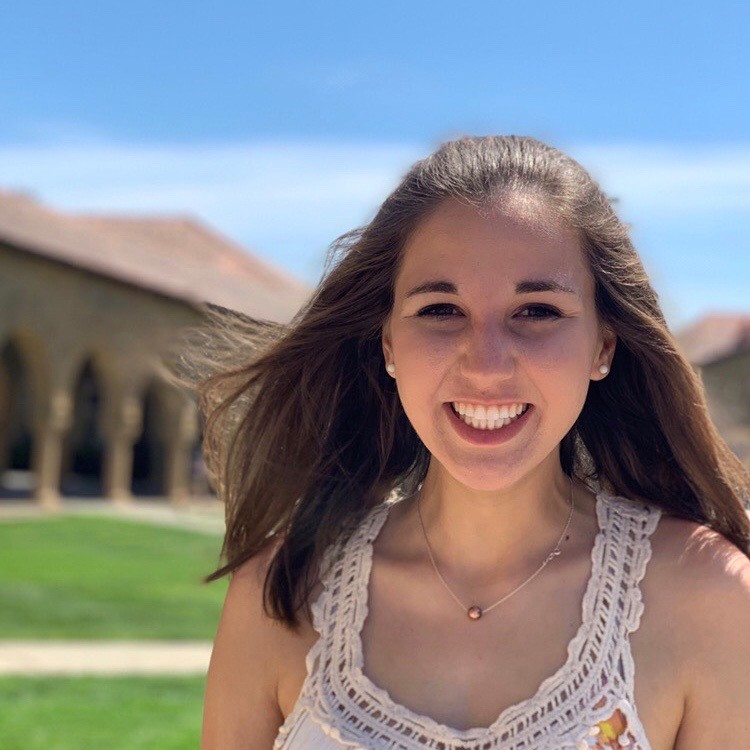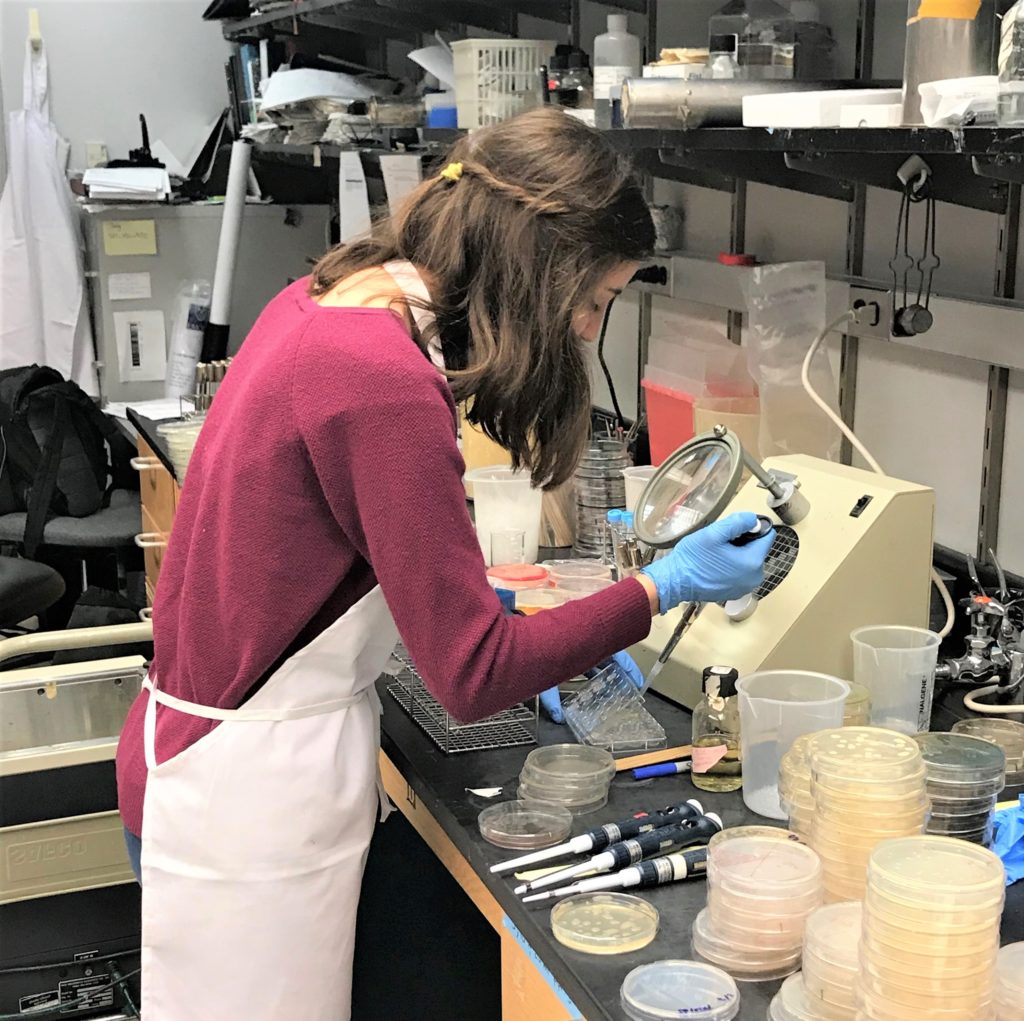Alumni, Broadcom MASTERS, ISEF, STS
Experiments in Social Distancing: STS alumna dives into research and spearheads nonprofit from home

With the change in our collective reality, the Society will be talking to our alumni and sharing their unique experiences during the pandemic.
Before the hasty shutdown of classes and campus life, rising Harvard College sophomore, Zoe Weiss (BCM 2014; ISEF 2017 and 2018; STS 2019), was absorbed in her biochemistry research at Mass General Hospital (MGH). There, the 19-year old was investigating “how RNA can act as both a genetic material and a mechanism to self-replicate.” Unfortunately, once Harvard gave notice to students that they’d have to finish the unprecedented semester remotely, Zoe was forced to stop her wet lab research and seek new, meaningful projects to work on from her family’s home in Georgia.
Despite the social distancing measures and angst from all the upheaval, Zoe has found ways to adapt and shift gears. From home, she is working on a computational project for a Penn State neural engineering lab. “We are developing a clinical tool for treating hydrocephalus in children from countries without pervasive access to healthcare.” She’s also working on a project about the transmission of COVID-19.
In addition, Zoe’s been working on her nonprofit, the Urban Science Summit, which was just awarded a $5,000 STEM Action Grant. Through her organization, Zoe empowers inquisitive young minds in urban, underrepresented areas to realize their potential in STEM fields. Zoe reveals her passion for a new pilot program her nonprofit just launched, which the grant will support, called InvenTEEN, originated in response to COVID-19. “This platform is to help young students develop their ideas for inventions and file provisional patents on their ideas. Working with some of my college friends, we will be helping with prototypes of the kids’ ideas and filings of provisional patents.” The program will reach underrepresented middle and high school students in Georgia, Kentucky, Massachusetts and Pennsylvania. Hear more from Zoe below.
How has this pandemic impacted your life?
With very little notice, I had to move out of my dorm room just before spring break. I went home and set up a workspace in my parent’s house and spent half a semester learning remotely. Fortunately, my family and I have remained healthy, but I have been really concerned about the serious illness and deaths across the country and world (especially their disparate impact on some groups), and the lack of a unified national plan to fight this terrible virus. The disease has taken a significant human toll. It is up to all of us to find ways to keep moving forward with our lives, our education, and our professions, but we must do so responsibly.
What is it like where you live right now, day to day? How are you keeping busy during the COVID-19 world crisis?
Of course, I miss all of the social interactions that I had at college. Fortunately, I had established a few foundational ideas before I left Boston and have been working on a few projects during the pandemic.
My first project was with a microbiology lab at Emory University to create a multi-compartment COVID-19 transmission model. We wanted to study the effects of various mitigation strategies on the transmission of coronavirus. A recent paper published in Science described how some people, called ‘super emitters,’ spread many more virus droplets than others. We made multi-compartment models based on this and performed simulations, considering different infectious groups with varying severities of symptoms. Frankly, models like these have strong mixing assumptions and should not be used to prescribe public policy, but they are informative at gaining an understanding of the complexity of this disease.

Do you have any tips or suggestions for others who have recently been impacted by the coronavirus?
Try to get heavily involved in some things that you are passionate about. With extra downtime, you can focus on an idea and develop it in any direction that you want. A lot of people are connecting through Zoom, so if you have questions, you can connect with others and have them help flesh out your ideas.
How are you keeping connected with the outside world? Explain.
Zoom plays a major role in staying connected. I attend lab meetings remotely, watch lectures, and facetime with my college friends at night. We celebrate birthdays on Zoom and remotely workout together. I also go on hikes, runs and bike rides to get outside and see others, albeit from a distance.
How do think the textbooks will describe this point in history?
We are living in difficult times, where we have a pandemic, social unrest resulting from racial injustices, a polarized upcoming election and increased unemployment. This unique dynamic will cost us many lives and will change laws on how people are treated. We are seeing new innovations arise, where working from home may transform how business and some science are conducted. History will not be kind, since this is a dark era, but our passion and compassion will be recorded as being what got us through this.
If you are interested in sharing your experience during the COVID-19 pandemic, please email the Society Communications team at communications@societyforscience.org.


